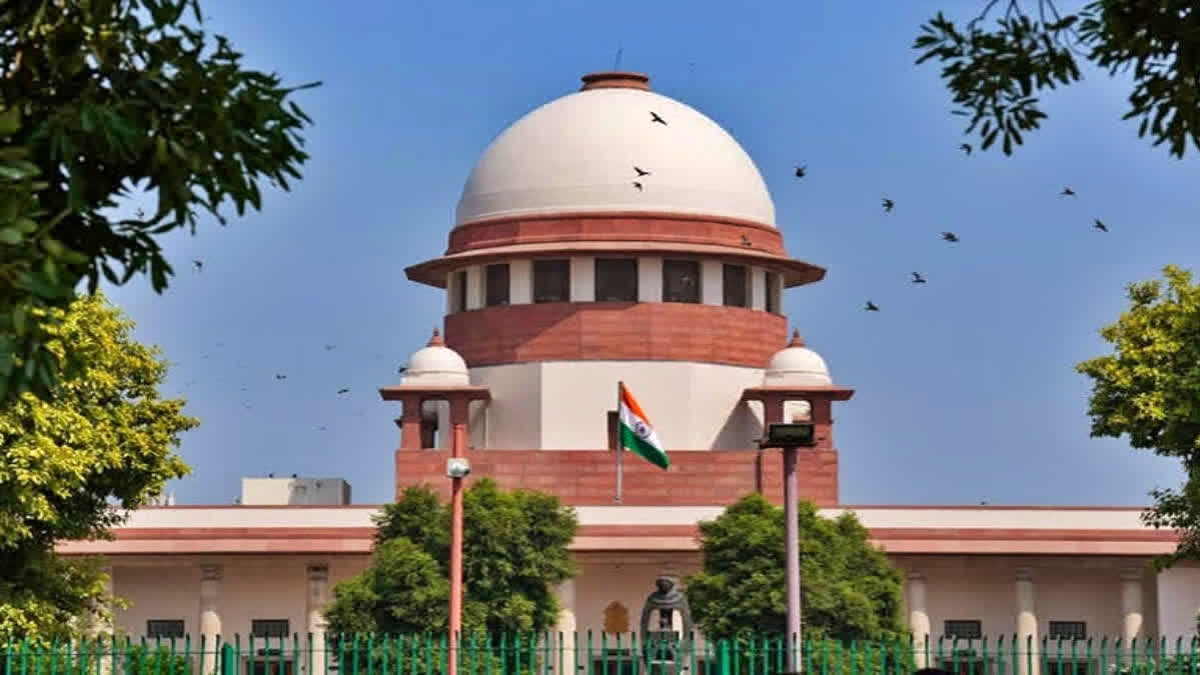New Delhi:The Supreme Court Tuesday declined to grant legal recognition to same-sex marriage, saying that non-heterosexual couples cannot claim an unqualified right to marry and held that only Parliament and state legislatures to create such institutions and grant them legal validation.
A five-judge constitution bench led by Chief Justice of India D Y Chandrachud and comprising justices S K Kaul, S Ravindra Bhat, Hima Kohli, and P S Narasimha, delivered the judgment on a clutch of petitions seeking legal sanction for same-sex marriage. The bench delivered four separate judgments.
All the judges on the bench agreed that homosexuality was neither an urban nor elitist concept, but they differed on whether the court can obligate the state to formally recognise the relationship of queer couples by giving it the legal status of a “civil union” or “marriage”.
The Chief Justice, in his judgment, noted that Entry 5 of the Concurrent List of the Seventh Schedule to the Constitution grants both the State legislature and Parliament the power to enact laws with respect to marriage. He said the power conferred by Articles 245 and 246 read with Entry 5 of the Concurrent List, Parliament has enacted laws creating and regulating the socio-legal institution of marriage, and the state legislatures have made amendments to such laws with the assent of the President since the subject of marriage is on the Concurrent list.
The Chief Justice said: “The petitioners seek that the Court recognise the right to marry as a fundamental right……this would mean that even if Parliament and the State legislatures have not created an institution of marriage in exercise of their powers under Entry 5 of the Concurrent list, they would be obligated to create an institution because of the positive postulate encompassed in the right to marry. This argument cannot be accepted”.
The Chief Justice observed that the right to education was held to be a fundamental right, not because of any statute or law but because of its centrality to the values that the Constitution espouses. He said the arguments of the petitioners that the Constitution recognises a right to marry is hinged on the meaning accorded to marriage by statutes, which cannot be accepted.
“The Constitution does not expressly recognize a fundamental right to marry. Yet it cannot be gainsaid that many of our constitutional values, including the right to life and personal liberty may comprehend the values which a marital relationship entails. They may at the very least entail respect for the choice of a person whether and when to enter upon marriage and the right to choose a marital partner”, said the chief justice. The Chief Justice said the Constitution does not expressly recognize a fundamental right to marry and an institution cannot be elevated to the realm of a fundamental right based on the content accorded to it by law. "However, several facets of the marital relationship are reflections of constitutional values including the right to human dignity and the right to life and personal liberty", said the Chief Justice.
Justice Kaul, in his separate opinion, said I believe that the legal recognition of non-heterosexual unions can challenge culturally ordained gender roles even in heterosexual relationships. “Our Constitution contemplates a holistic understanding of equality, which applies to all spheres of life. The practice of equality necessitates acceptance and protection of individual choices. The capacity of non-heterosexual couples for love, commitment and responsibility is no less worthy of regard than heterosexual couples. Let us preserve this autonomy, so long as it does not infringe on the rights of others”, said Justice Kaul.
